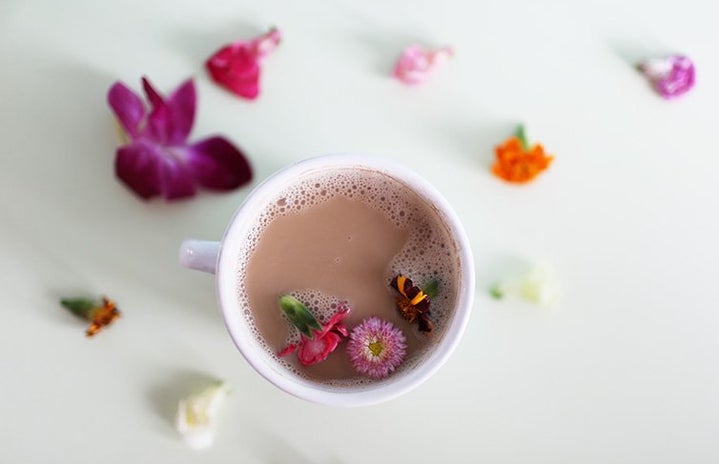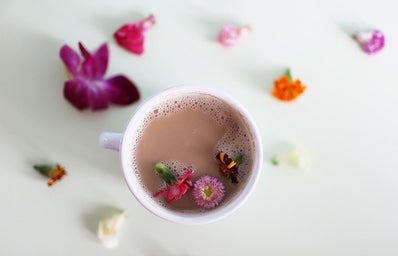I had never felt pride in being Vietnamese until starting college. For the first time, I drew strength from my heritage. Suddenly, I felt like I had an upper hand in life because of my different perspectives and approaches to life. I spoke a different language, ate different food, and celebrated different holidays. I no longer wanted to hide these differences to feel qualified to be someone’s friend, or simply be remembered as more than “the Asian girl.” I was literally the only Vietnamese girl at my school until the 8th grade when a new girl moved into town … and then we were assigned to be “buddies” on her first day of because they thought she couldn’t speak English. It was ridiculously awkward, and we never spoke again afterwards.
The first time I watered down myself was when I was six years old. I was a winner of the school’s bookfair raffle. The prize was getting to eat lunch with the principle. My mom packed me a small Tupperware of fried rice and then packed that into a leftover KFC paper bag we had from the night before. I was the only student who had to go microwave their lunch and it made the room so “smelly.” This was the beginning of years’ worth of arguments over what to pack for school lunch in fear of other kids calling it stinky or gross looking. I didn’t want to be watched as I ate. I was terrified of receiving more comments like “gross!” or “I can’t believe you just ate that!” than I already had.
I remember dressing up as my favorite character, Princess Annalise from Barbie’s Princess and the Pauper, for Halloween when I was eight. I was SO excited to wear her sparkly pink gown, tiara, and the slippers! About an hour into trick or treating that night, a random boy asked me who I was dressed up as. I told him with the biggest, proudest smile “Princess Annalise!” to which he responded with “you can’t be her! You’re Asian!” The rest of the night I half-heartedly told people I was just a princess. I could have been Mulan sure, but I loved all the Barbie princesses so much more. Pink was my favorite color after all. I later learned in my teenage years that unless you dressed up as an Asian character, people automatically assumed you were an anime character or as “Asian ___”. People didn’t want to get it. Super awkward times. My costume options had gone from endless to limited in one Halloween night. Things stick a bit more when you are young.
When I was nine, I saw a billboard advertising surgery for “Single Asian Women to Look More White” to find their “perfect match” while on a road trip to Minnesota. This… this hit me the worst. The feeling of insecurity and inferiority because of my race carried with me until I was 16. Not the billboard specifically, but the attitudes I developed from it. Insecurity ridden and surrounded by people who looked different than me, and from what I had observed, were regarded as more, I tried to do my make up the way I saw white women did in movies and magazines. I avoided ever wearing traditional Vietnamese gowns during the Lunar New Year in fear of people staring or calling it “cute.” Cute isn’t sweet, its patronizing. I stopped bringing Vietnamese food to school altogether. I did anything and everything I could to feel like everyone else who were so innately different than myself.
I never got to see Asian women be strong and powerful in the media I consumed growing up. In every movie or show, we were the assistants, the quiet ones, the weird manga obsessed ones, the nerds, or literally just “the Asians.” I loved Mean Girls and Glee like everyone else, but those were rough. Being Vietnamese felt like this oppressive category I hadn’t ask for, when it should have been the root of a beautiful individuality. I did not have role models that sphered further than family. This sent disheartening messages saying I did not have a place in the line of success. That people like me weren’t even mentionable. We weren’t desirable. Not worth more than a few minutes on screen, a few quiet lines. We were the small ones who served others first.
Maybe if there had been more representation growing up, I wouldn’t have been asked why I cared so much about my grades when I was going to “end up working in a nail salon” anyways. Maybe if I had had more than a fictional Chinese warrior and rich hotel heiress representing me, I would have even taken myself seriously too. Maybe if there were more movies where an Asian woman got her dream guy, I would have had more confidence. Maybe if not just me, but every kid around me, had seen Asian women in settings other than salons, hospitals, or restaurants, there would have been fewer condescending tones used toward me. And even as doctors on screen, we were always portrayed as so ambitious it was annoying or so socially incompetent it required a “fabulous” makeover.
Crazy Rich Asians was the first movie that made me feel celebrated and beautiful and wonderful and glamorous and everything that rom-com movies are supposed to make you feel. This film was released when I was 20 years old. 20 years it took for me to feel like my Asian culture was brought to justice. Our stories and voices had been completely disregarded on screen, only used every now and then for a quick punchline. Our food finally depicted as delicious instead of “interesting.” Our “silly” superstitions still made light of, but respectfully because we all have those parents. Our utmost respect for our elders illustrated in ways that explained to the masses why we speak to those older than us the way we do. The fact that every character’s parents in the movie had gone through unimaginable hardships to provide for their families, give their children a boundless future. It’s a form of gratitude that cannot be encompassed in words. My mom could not believe they made a movie like this, and she’s lived in the U.S. since she was 17 years old. We watched it twice together and still haven’t gotten over it a year later.
There is still so much more progress to be made. When it was announced that Mulan was being remade into a live action film, the first question my mom asked me was if they were going to cast her as a white woman, because that’s what has always happened with other films. I’ve shared my experiences that I have here with many friends whom I have learned experienced the same cycle of essentially hiding their culture to fit in. Normalization of diversity in movie leads and media is necessary.
Always Be My Maybe starring Ali Wong and Randall Park was recently released and adored by all and Constance Wu’s Fresh Off the Boat is still going strong! The increase of representation is changing lives, from children to grown adults. It’s heartwarming and inspiring to be able to see my nieces have role models besides their moms and that my mom can finally see more people like us on screen speaking with an accent like hers.
Support movies that encourage change and diversity and progress and cultural awareness and you probably get the point now. Get to know people who are different than you. Learn about their backgrounds, their beliefs, their ideals! Put yourself in their shoes and only then is it truly understandable why representation is important. Everyone on this planet is so beautiful and unique in their own ways, and that individuality should be celebrated!



